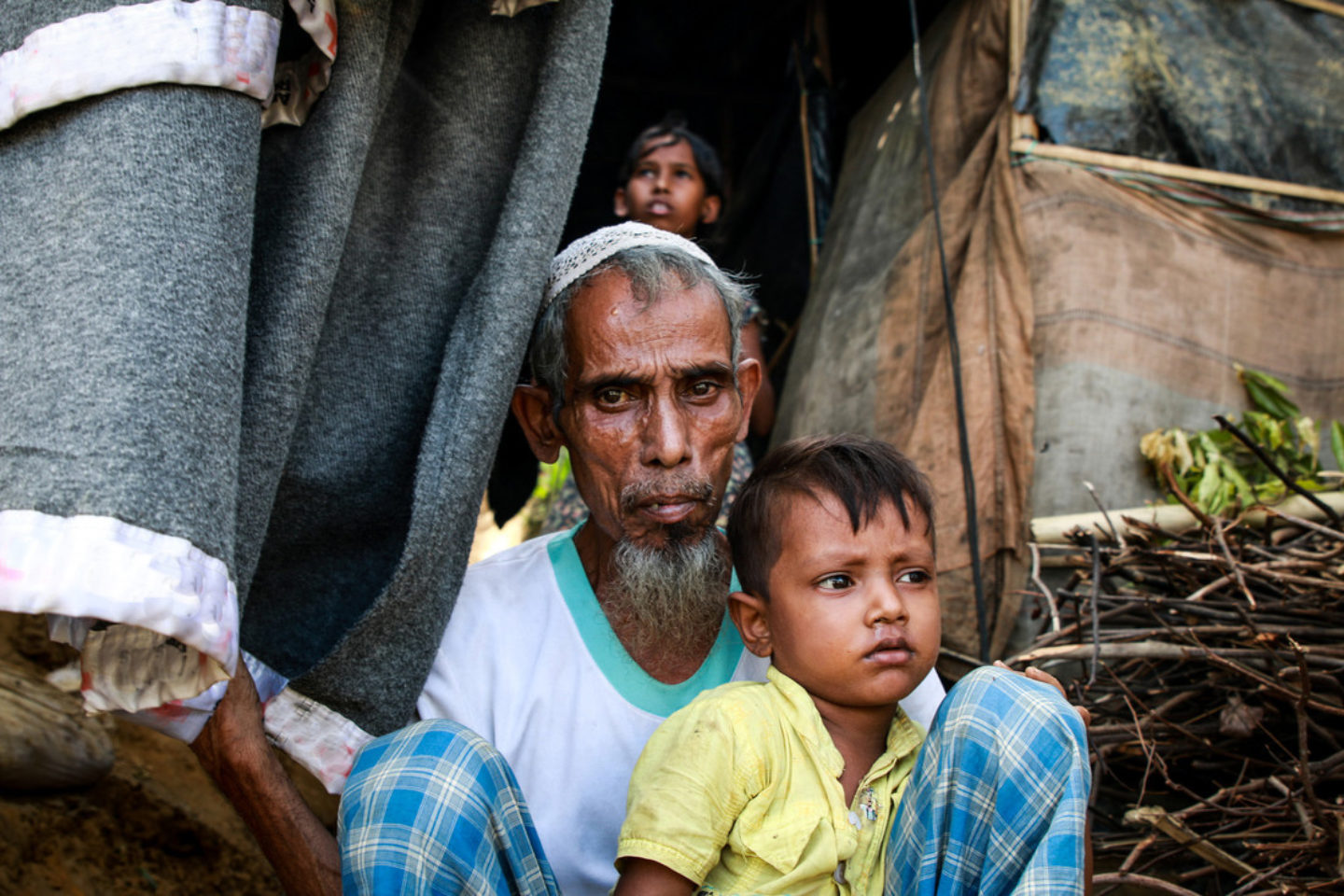Stories from Bangladesh
Remembering the elderly in emergencies
Among the most forgotten during emergencies are the elderly. Their needs are unique and often require more tailored responses than the typical action humanitarian responders can provide.
Many elderly people battle chronic health issues that require regular access to medication and treatment. Others are managing disabilities in a new, vulnerable setting. Sadly, some elderly family members are separated from their loved ones during natural disasters or when forced to flee their homes because of conflict.
With the seconds ticking by and lives on the line, first responders must focus on providing large-scale emergency relief to as many people as possible in order to save the maximum number of lives. Unfortunately, this means that more specific needs can go unmet.
Our teams know this and strive to meet these “unseen” needs wherever and however possible — because we believe that each life is valuable, no matter how hard or difficult to reach.
 Aaid, 73, holds John, the lost boy he now looks after.
Aaid, 73, holds John, the lost boy he now looks after.
Leaving it all behind
Aaid, 73, knows all too well the struggles of life as an elderly refugee. Walking is not always easy for Aaid at his age. Yet, when violence erupted in Myanmar’s Rakhine State back in August 2017, Aaid found himself running for his life. His village and home were set ablaze.
“I ran with my wife, daughter, and grandson to get to safety. We hid when we could, we ran when we could. It was a three-day journey. We couldn’t bring any food. Our land and our cows, our clothes and our house . . . we had to leave it all behind.
“And then the worst thing happened. My wife and grandson were shot. I wept. I wanted to stay with them, but when they died I had to leave them behind, because people were still coming after us. I had to take care of my daughter.”
Lost together
During his journey, Aaid came across a young boy who seemed to be alone. “We saw a boy crying on the side of the road, calling ‘Mum?’ ‘Dad?’ It was so heartbreaking to see him. There were no parents or guardians or anyone there for him.”
As gunfire filled the air, Aaid gathered the boy in his arms and carried him to safety. It was a terrifying journey, but Aaid, his daughter, and the lost boy made it to made it across the border to the refugee camp in Bangladesh — three of the 655,000 Rohingya refugees now residing there in the world’s largest refugee camp.
“When we came here to the camp, people and organisations helped us. We have had enough to eat fortunately. But we needed a shelter.”
Thanks to the help of our supporters, Medair, in partnership with World Concern, was able to provide shelter materials and hygiene supplies to Aaid and more than 4,500 refugee families to help protect them from the elements and prevent illness. “We are very thankful for these materials,” said Aaid.
An unknown future
Aaid continues to care for the young boy, John, who has no one else. They have both lost so much, so suddenly, that they cling to one another. But nothing is harder for Aaid than losing his wife.
“I miss my wife every single day. I miss her the most of all that I’ve lost.”
No one knows how many years are still ahead for Aaid. But we know that it matters that Aaid, along with the rest of the elderly people we serve, have their needs met just like everyone else.
If you’d like to support more people like Aaid and John who continue to be caught up in the Rohingya Refugee Crisis, please make a gift of any amount today. Or become a monthly donor to provide ongoing support to the Rohingya people through the provision of shelter, hygiene supplies, and nutrition services.
